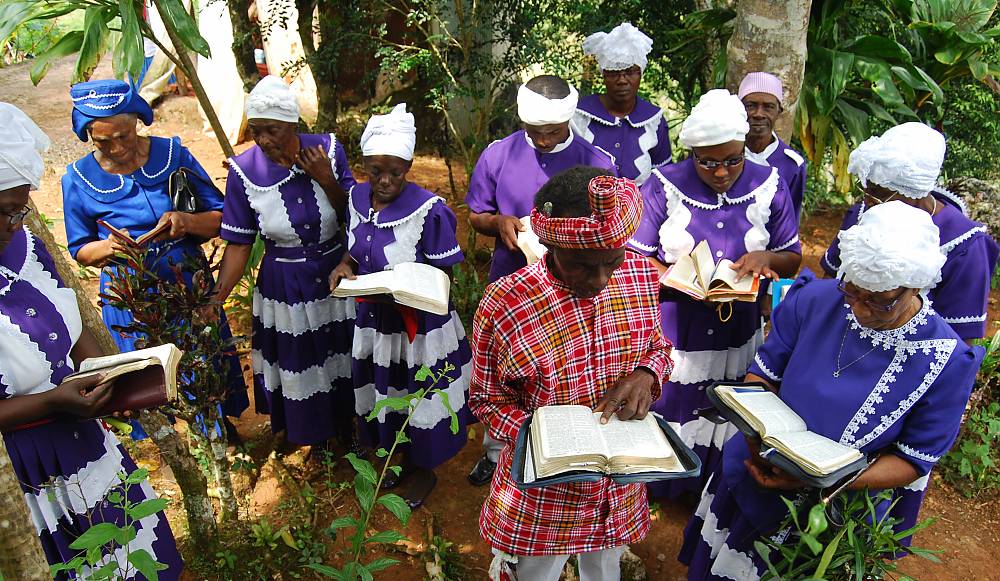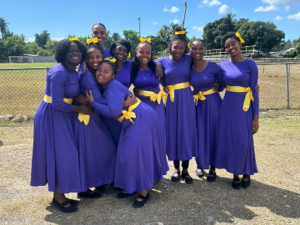Shining light on this evil practice
Sometime ago, the Minister of Culture, Gender, Entertainment, and Sport, Olivia Babsy Grange, submitted ‘Revivalism, a religious practice in Jamaica’, to the United Nations Educational, Scientific, and Cultural Organisation (UNESCO) for inscription on its Representative List of the Intangible Cultural Heritage of Humanity. For some, this really has no meaning or great significance, as they have grown up hearing about Revivalism being one of the religions of the people of Jamaica.
THE GREAT CHRISTIAN REVIVAL IN THE MID-1800S
Let’s do a bit of history. In Jamaica, Revivalism emerged from the Great Revival of 1860–61, which began from 1858–59 as a prodigious Christian revival known as ‘the Prayer Meeting Revival.’ Sweeping across the continental USA and the British Isles, “the results of this revival were filled churches, transformed lives, missionary expansion, evangelistic passion, philanthropic growth, and a massive revitalization of the universal church [the body of Christ]. It was extraordinary, even in Jamaica!” So said Tony Cauchi in a July 6, 2019 Gleaner article written by Paul H. Williams.
60 AND 61 ORDER REVIVALISM EMERGE
Mr. Williams goes on to say that “The fervour spread and took root in 1860–61 in Jamaica” and further expounds that it was from this that two branches of Revivalism were formed: the ‘60 Order’, or Revival Zion, and the ‘61 Order’, or Pocomania. While Zion tends to feature many components of orthodox European religions, Pocomania comprises mostly elements of African spiritual worship and practices. These main groups are known widely as Revival Zion, Zionist, Revival, and Pocomania and are said to be a blend of Baptist, Methodist, Roman Catholic, Anglican, and Pentecostal beliefs and practices, with modified African be

liefs and practices added.
Revivalists believe the spiritual and earthly realms are one. The living and the departed, therefore, can communicate with each other. “Therefore, the living can become possessed and influenced by the spirits of the dead.” (Gleaner, July 6, 2019)
GOD DETESTS ‘DARK ARTS’
There are serious implications to this matter of believing that the spiritual and earthly realms are one and of communication between the living and the dead. The latter practice is known as necromancy, and the Word of God is very explicit in decrying this custom (e.g., Deut. 18:9–12). Of course, those who reject the writings of the Old Testament will not see the relevance; however, while not necessarily speaking directly to necromancy, the New Testament also warns against witchcraft/evil spirits. (Gal 5:20, Rev 21:8).
There are also many other Scripture references that speak against mediums, soothsayers, diviners, sorcerers, charmers, fortune tellers, and the like. Their specialty is invoking unclean and evil spirits, and the practitioners of such ‘dark arts’ are considered detestable and abominable by God.
GOD ACTIVATES ONLY THE HOLY SPIRIT TO OPERATE IN OUR LIVES
Possession by invisible forces and ‘travelling’ are also features associated with Revivalism. These may seem to be acceptable as there are Scriptural references to being filled, but this filling is only with the invisible presence of the Holy Spirit. For example, note that the manifestation of the Holy Spirit’s presence in the life of the Born-again Believer is evident, as seen on the day of Pentecost (Acts 2).
We also read of Philip, who, after ministering to the Ethiopian eunuch, was transported (travelled) to another place by the power of the Holy Spirit (Acts 8:39). The difference between the two instances cited is that the persons were controlled by the presence of God in the person of the Holy Spirit and not by unknown, evil, or familial spirits.
REVIVALISTS’ SPIRITS ARE NOT OF GOD
Revivalism, in its many forms, also promotes oral confessions, trances, dreams, prophecies, spirit seizures, and frenzied dancing. Integral to the practice of the craft is also clothing, but at its core is the fact that spirits are being invoked, and this is not of God in Christ Jesus.
Any form of worship, or even life and living in general, that dabbles in spirits that are not of God cannot be good for an individual and, consequently, a nation.
Again, think of King Saul, who, after consulting the woman with the familiar spirit at Endor (1 Sam 28:7), ultimately died, resulting in the kingdom being turned over to David (1 Chron. 10:13–14).
There has been a great outcry and many prayers sent up by Born-again Believers in Christ in Jamaica against Obeah, witchcraft, Revivalism, Voodoo, and other such “traditions.” At the heart of these so-called “cultural observances” is the use of blood sacrifices, invoking of spirits (ancestral and otherwise), erecting evil altars, and mixing the things of God with African rituals.
But, perhaps in an effort to counteract the prayers of God’s people, the aforementioned minister of government may have thought that going to UNESCO would thwart the petitions of the people of God; far be it so.
We continue to storm the mercy seat of the true and living Yud Hay Vav Hay, Who answers by fire.
“And call ye on the name of your gods, and I will call on the name of the LORD: and the God that answereth by fire, let him be God. And all the people answered and said, It is well spoken.” (1 Kings 18:24)






